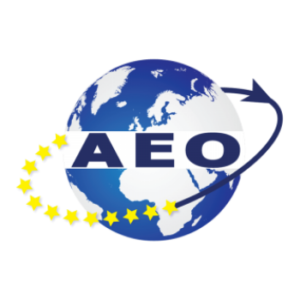As part of our efforts aimed at streamlining the logistics chain, we offer comprehensive customs services. Our agents are fully committed to take care of any formalities at the Customs Office related to import, export and transit of goods.
What is a Customs Agency?
A customs agency is a company providing professional services related to representation of entities and individuals importing and exporting goods before the Customs Office.
Building on their expertise in customs regulations, legal requirements and necessary documentation, customs agents handle the payment of customs duties, customs clearance and other activities related to the movement of goods across borders around the world. Thanks to all!
Why use a customs agency?
The key benefits of working with a customs agency include:

The main task of a customs agency is to deal with activities related to customs clearance. Agents make customs declarations for goods crossing the European Union border and for the acquisition of excise goods within the European Union. Moreover, they provide advice, verify documents, calculate all necessary payments and represent the client before the Tax and Customs Office, Border Sanitary Inspection or Agricultural and Food Quality Inspection.
Examples of customs agency tasks include:
- Declaration for the release for circulation procedure in writing: electronically (AIS system) or in hardcopy (SAD form) – mandatory in the case of imports from outside the EU. It enables legal trade or use of imported goods. The result of the declaration is that the importer receives a PZC document (confirmation of customs declaration) upon the payment of customs duties and taxes.
- Declaration for the procedure of export of goods from the EU customs territory in electronic form to AES/ECS2 system – mandatory for companies exporting their goods. It allows IE599 message to be received, which is an export confirmation.
- Issuance of T1, T2 documents, completion and electronic declaration T1 enables legal carriage of imported, non-EU goods from the EU border to the place of final clearance in the country or e.g. to a customs bonded warehouse. T2 documents, on the other hand, are issued for exports and are intended to facilitate the crossing of customs borders during transit between the country of export and the country of destination.
- Issue of the TIR Carnet.
- Arrangement of inspections of market regulatory authorities (WIJHARS, SANEPID, PIORIN) – for certain categories of goods (agricultural produce, food products or food contact products), inspections by competent services are necessary before the products are allowed on the market.
- Issuance of certificates of origin EUR 1, ATR – necessary in case of exports to countries with which the EU has signed free trade agreements (e.g. Ukraine, Switzerland, Norway, Serbia). However, trade with Turkey requires an ATR certificate in addition to EUR 1.
- CMR preparation, printouts.
- Submission of applications and appeals.
We are AEO certified
An AEO (Authorised Economic Operator) certificate is a permit issued by the Customs Service. In Poland, it is known as “Certyfikat Upoważnionego Przedsiębiorcy”. Obtaining such a certificate ensures the safety and security of trade. With this certification, our agency takes over certain responsibilities related to customs operations.
The AEO certificate is valid throughout the European Union and is recognised by all member country customs authorities. This means that an entrepreneur who obtained this certificate is given priority by customs as a reliable company.
Certification translates into increased trade security and tangible benefits:
- priority handling of applications and customs declarations;
- special service areas;
- dedicated lanes;
- fewer physical and document inspections.

Using our services is very simple. Your first step to cooperate with a customs agency is to sign appropriate documents. Indirect authorisations are most commonly used for the so-called simplified procedure. In other situations, a direct authorisation is generally granted. The next step involved electronic registration of the authorisation received from the company requesting the service. And we are ready for cooperation!
Grow your business with us!
Do you want to know more? Request a quote. We will prepare the best offer to fit your transport needs.

